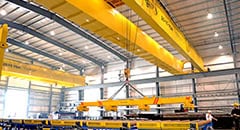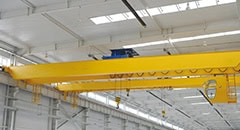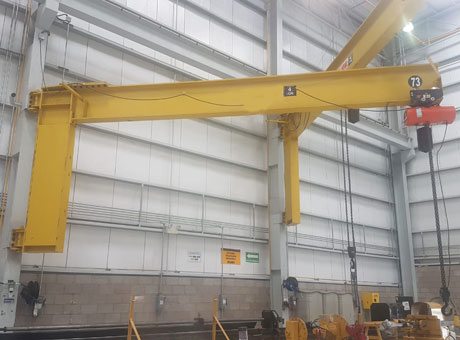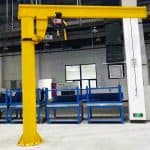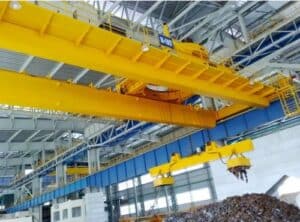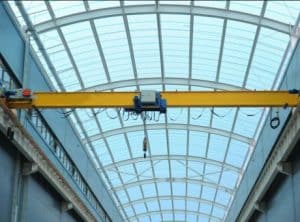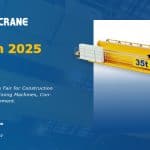SEVENCRANE wall traveling jib cranes (also known as wall mounted jib cranes) use bolted angle iron connections to fix the tripod bracket on a concrete wall or column. It can also be installed on machinery and equipment without occupying any ground space. The cantilever and bracket are hinged, with simple structure, convenient operation and large working space. The swing arm can be equipped with an electric hoist or a manual hoist to lift heavy objects. The electric or hand chain hoist runs linearly on the I-beam of the swing arm and lifts the heavy objects. The suspended heavy objects or self-prepared pull rings are pushed by manpower to realize the turnaround.
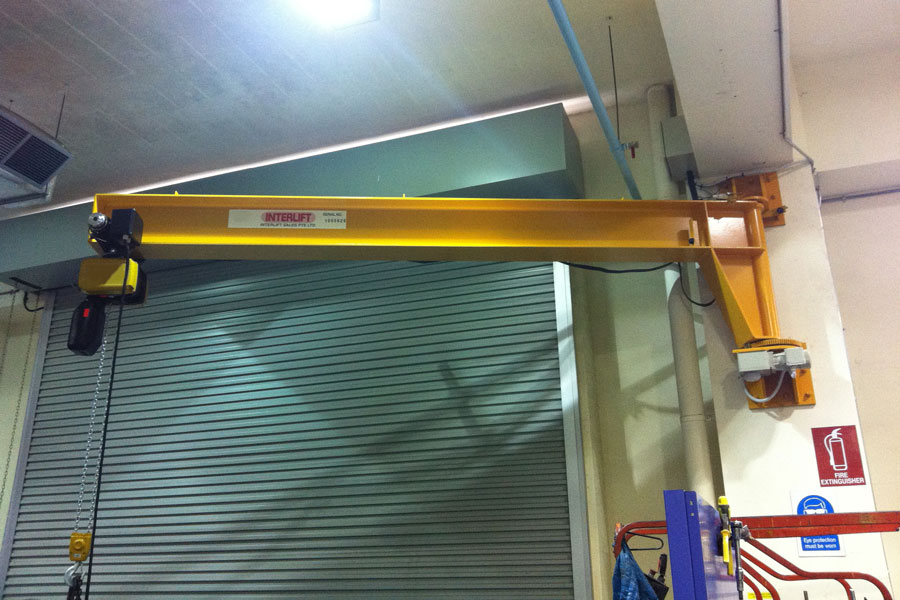
Factory direct sale wall travelling jib cranes are suitable for warehouses, docks, and short-distance transportation and loading of goods. They provide ideal lifting machinery for steel structure workshops or production lines. They are safe and reliable to use and can rotate flexibly, thereby reducing the intensity of workers’ work and improving productivity.
Working principle of wall-mounted cantilever crane:
The working intensity of the wall-type cantilever crane is light. The crane is composed of a tripod bracket, a slewing arm rotation drive device and an electric hoist. The lower end of the column is fixed on the concrete foundation through anchor bolts. The cycloidal pinwheel reduction device drives the cantilever rotation and the electric hoist Run left and right straight lines on the cantilevered I-beam and lift heavy objects.
Wall travelling jib crane structure consists of:
- It is mainly composed of a cantilever, a slewing device, and an electric chain hoist;
- The electric chain hoist has the functions of lifting and reciprocating on the beam;
- The cantilever beam can be driven by the reducer on the slewing device to rotate the roller;
- The electrical control box is installed on the chain hoist.
The operation of the wall travelling jib crane is realized through the flashlight door button. The flashlight door has eight buttons, which respectively control fast rise, fast fall, slow rise, slow fall, left and right rotation, and horizontal forward and backward walking of the hoist trolley.
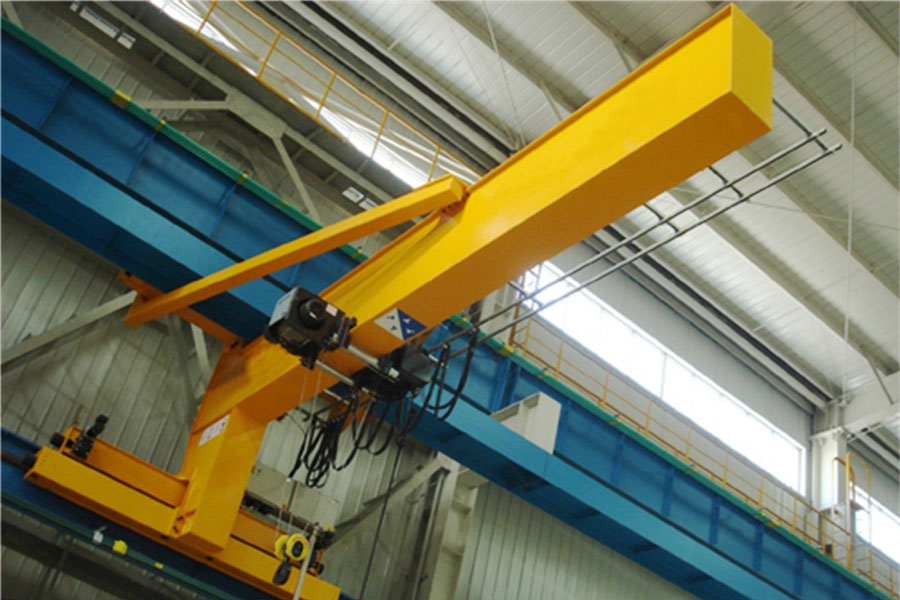
Working characteristics of workshop used wall travelling jib crane
- Mounting: The crane is attached to a wall or a vertical structure using a sturdy bracket or support system. It relies on the structural integrity of the wall to provide stability.
- Jib Arm: The jib arm of the crane extends horizontally from the wall, providing a reach for lifting and moving loads. The length of the jib arm can vary depending on the specific requirements of the application.
- Rotation: The jib arm is typically designed to rotate either manually or with the assistance of a motorized system. The rotation allows the crane to cover a larger working area without the need for repositioning.
- Lifting Capacity: Wall traveling jib cranes come in various lifting capacities, ranging from light-duty models for smaller loads to heavy-duty models for larger loads. The lifting capacity is determined by factors such as the design, materials used, and the structural integrity of the wall.
- Control System: The crane is operated using a control system that can be either wired or wireless, depending on the specific model. The controls allow the operator to maneuver the crane, control the lifting and lowering of loads, and rotate the jib arm.
- Versatility: Wall traveling jib cranes can be used in a variety of industrial and commercial settings, such as warehouses, manufacturing facilities, assembly lines, and loading docks. They are particularly useful in areas where floor space is limited or obstructed by equipment or other structures.
- Safety Considerations: Proper installation and maintenance are crucial for the safe operation of a wall traveling jib crane. The wall or structure to which the crane is mounted must be capable of supporting the crane and the loads it will lift. Additionally, safety features such as limit switches, overload protection, and emergency stop buttons should be incorporated into the crane’s design.
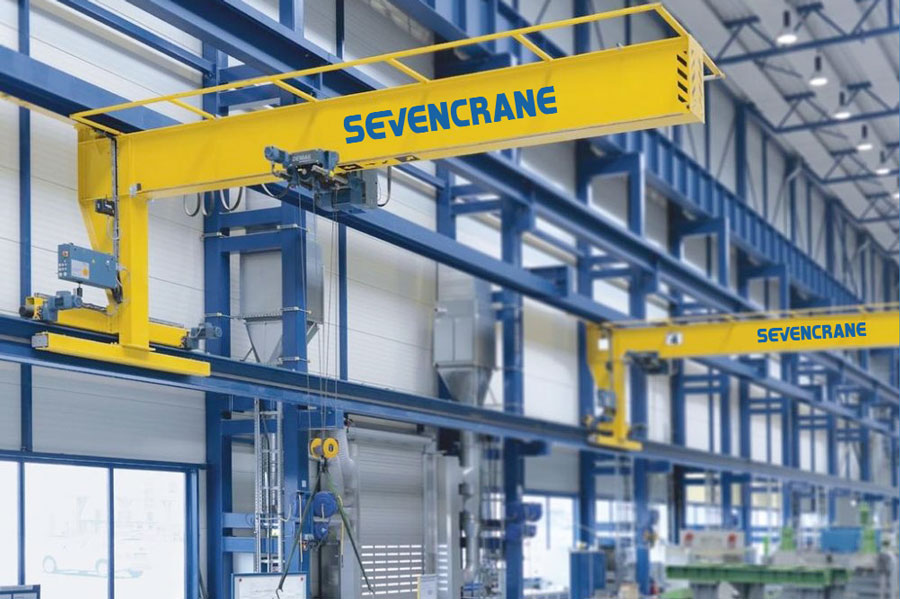
It’s important to note that the specific design and features of the industrial jib crane can vary depending on the wall travelling jib crane manufacturer and the intended application. Consulting with a qualified crane supplier or engineer is recommended to ensure the selection and installation of the crane meet the specific requirements and comply with applicable safety standards.

